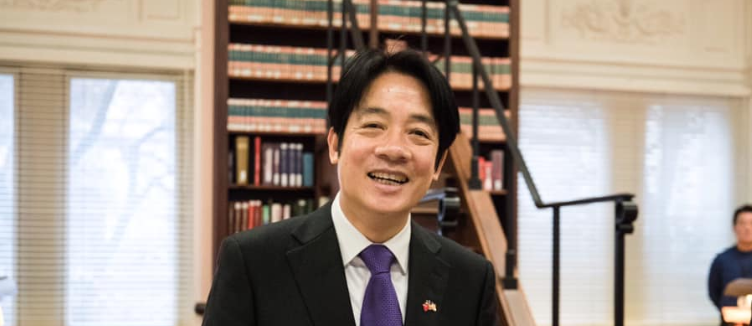Taiwan presidential contender says he wants peace with China
Taiwan Vice President William Lai pledged on Wednesday to maintain the peaceful status quo with China but also to defend Taiwan, as he took the helm at the ruling party ahead of an expected presidential run. Lai was elected the Democratic Progressive Party's (DPP) new chairman on Sunday, after President Tsai Ing-wen resigned as chairwoman in November following the DPP's trouncing at local elections.

- Country:
- Taiwan
Taiwan Vice President William Lai pledged on Wednesday to maintain the peaceful status quo with China but also to defend Taiwan, as he took the helm at the ruling party ahead of an expected presidential run.
Lai was elected the Democratic Progressive Party's (DPP) new chairman on Sunday, after President Tsai Ing-wen resigned as chairwoman in November following the DPP's trouncing at local elections. Lai is widely expected to be the party's candidate for president in the early 2024 election, though he has not formally accepted the nomination. Tsai cannot run again as president due to constitutional term limits.
As in the last election, which the DPP won handily by promising to stand up to China, relations with Beijing are likely to top the agenda for 2024, especially as China ramps up pressure to get Taiwan to accept Chinese sovereignty. Speaking to reporters after officially taking over as party chairman, Lai said facing the threat from China, the DPP's mission was to protect Taiwan, but that peace was the common expectation of people on both sides of the Taiwan Strait.
"We will use our best efforts to maintain the status quo of regional peace and stability," he said, adding that peace also depends on national defence. Lai angered China in 2018 while he was premier, telling parliament he was a "Taiwan independence worker" and that his position was that Taiwan was a sovereign, independent country - a red line for Beijing.
Asked about those comments, Lai said he was committed to following Tsai's policy that includes stating only Taiwan's people can decide their future, and that the Republic of China - Taiwan's formal name - and the People's Republic of China are "not subordinate to each other". "The pragmatic acceptance is that Taiwan is already a sovereign, independent country, and there is no need to separately declare Taiwan independence," he added.
China has refused to talk to Tsai since she first took office in 2016, believing her to be a separatist. Tsai says that the Republic of China on Taiwan is an independent country already, and Beijing has no right to claim it. Taiwan's main opposition party, the Kuomintang or KMT which traditionally favours close ties with Beijing, has not decided on its presidential candidate yet.
A Tuesday poll published by the Taiwanese Public Opinion Foundation showed Lai leading, but only slightly, over Hou Yu-ih, the KMT mayor of New Taipei city, considered by party sources a potential frontrunner as their candidate. Hou has also not confirmed he is running.
(This story has not been edited by Devdiscourse staff and is auto-generated from a syndicated feed.)
- READ MORE ON:
- Taiwan
- Tsai Ing-wen
- China
- William Lai
- Kuomintang
- New Taipei city
- Beijing
- Hou Yu-ih
- Tsai
- Chinese
ALSO READ
Trump's Second Act: Beijing's Calculations in a New Era of Rivalry
Subianto's Diplomatic Ballet: Bridging Jakarta and Beijing
Disappointing Beijing Stimulus Sends Hong Kong Stocks Plummeting
Indonesia Stands Firm on Sovereignty Amidst South China Sea Deal with Beijing
Danish MPs Defy Beijing, Advocate for Taiwan in Landmark Visit










